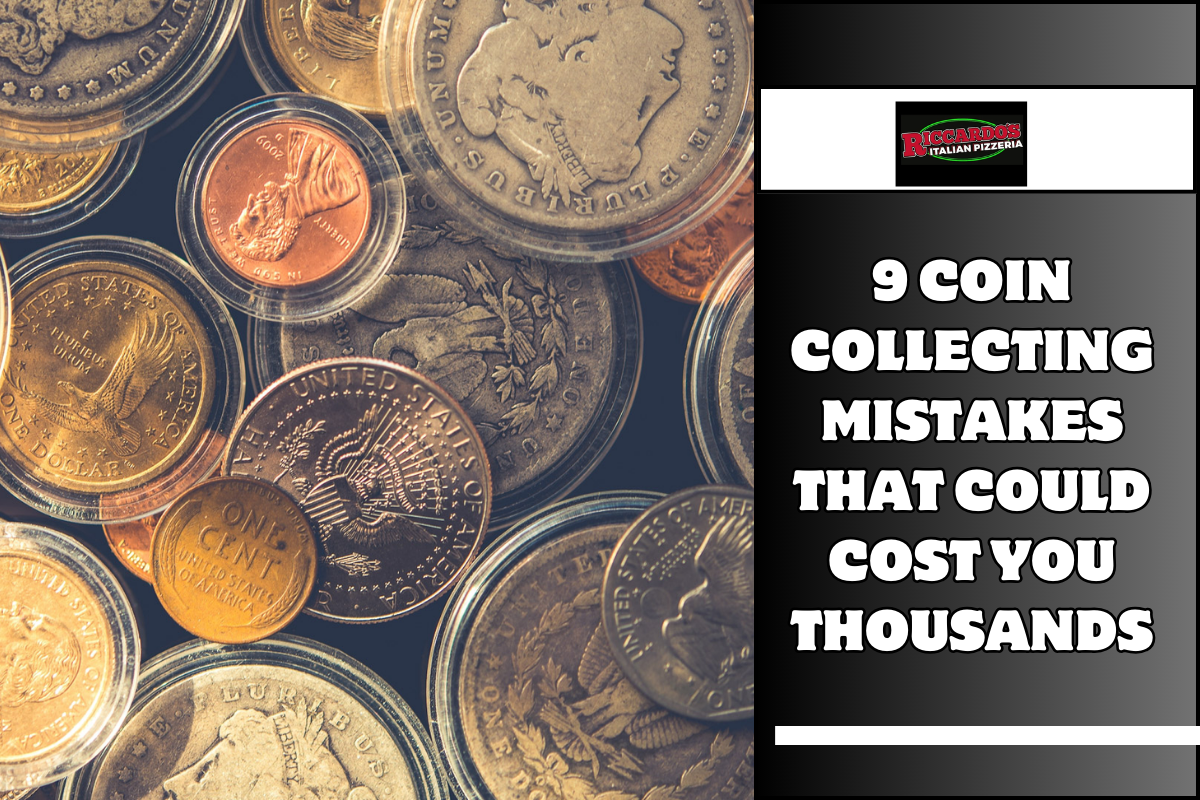9 Coin Collecting Mistakes That Could Cost You Thousands: Coin collecting is a hobby that can be intellectually and financially rewarding for those who participate in it.
9 Coin Collecting Mistakes That Could Cost You Thousands
Nevertheless, there are particular errors that can have a significant impact on the value of your collection, which could potentially cost you thousands of dollars. Here are nine common mistakes that should be avoided when collecting coins:
1. Lack of Proper Research
The failure to conduct sufficient research prior to the purchase of coins is one of the most significant errors.
It is essential to have a solid understanding of the market, the historical values of the coins you are interested in, and the specific details about those coins.
You run the risk of overpaying for coins or purchasing counterfeits if you do not have the necessary knowledge.
2. Ignoring Coin Condition and Grading
The state of a coin, which is frequently referred to as its grade, is a significant component that plays a role in determining its value.
From Poor (P-1) to Perfect Uncirculated (MS-70), coins are ranked on a scale that ranges from poor to perfect.
3. Improper Storage
Incorrectly storing coins can result in damage such as scratches, tarnish, or corrosion because of the way they are stored.
Keep coins in a controlled environment, away from moisture, extreme temperatures, and direct contact with other coins. Coins should also be stored in these conditions.
4. Cleaning Coins
In general, cleaning coins is not recommended because it can significantly reduce the value of the coins itself.
A significant number of collectors favor coins that have their original surfaces, even if they appear to be tarnished or dirty.
Also See:
How to Make Obedient Plant Behave in Your Flower Garden
5. Neglecting Provenance
There is potential for value to be added to a coin by its history, which may include previous ownership and its journey through the market.
There is a possibility that the resale value of a coin will decrease if the provenance of the coin is not documented or verified.
6. Overpaying for Coins
The mistake of paying an excessive amount for a coin is a common one, particularly among younger collectors.
Comparing prices, gaining an understanding of the coin’s market value, and being wary of sellers who are overly optimistic are all extremely important.
7. Buying from Unreliable Sources
There is a greater possibility of acquiring counterfeit or overvalued coins if one purchases coins from sources that are not reliable or that cannot be verified.
8. Failing to Diversify
The act of putting all of your money into a single series or type of coin can be considered risky.
Due to the fact that the coin market is subject to fluctuations, diversifying your collection can protect you from suffering losses in a particular market segment.
9. Ignoring Market Trends
Because of the dynamic nature of the coin market, values are subject to change depending on factors such as economic conditions, collector interest, and availability.
Conclusion
By avoiding these common mistakes, you can help ensure that your hobby of coin collecting is not only enjoyable but also financially rewarding. Building a collection that is valuable and respected can be accomplished by conducting extensive research, gaining an understanding of grading, storing coins in the appropriate manner, and exercising caution when making purchases.
